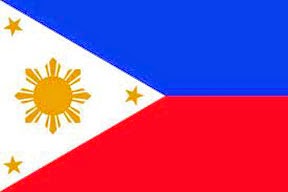
MANILA (Mindanao Examiner / Apr. 1, 2014) – The Philippines has taken steps to combat the proliferation of cybersex websites and urged telephone companies and Internet service providers to help in the government campaign against the nefarious operations of organized groups behind them.
Justice Secretary Leila de Lima said the Philippines has already attracted worldwide media attention and identified the country as a major hub of the billion dollars global child cybersex industry.
She said blocking and filtering of websites that exploit women and specially children should be included as part of telephone companies’ corporate social responsibility. The campaign, she said, may yet provide the most significant action that would minimize, if not totally eradicate, cybersex activities in the country.
De Lima said telephone companies and Internet service providers have a corporate responsibility to respond to the call to combat the growing menace of cybersex or webcam child sex tourism as the existence of such would erode the moral fibre of the community to which they also belong.
Just recently, the Inter-Agency Council Against Trafficking also headed by De Lima, lauded the National Telecommunications Commission for its issuance of Memorandum Circular No. 01-01-2014 which established guidelines for implementing Republic Act No. 9775 or the Anti-Child Pornography Act Of 2009.
Section 9 of RA 9775 gives the NTC the authority to promulgate the necessary rules and regulations of the installation of filtering software that will block access to or transmission of any form of the child pornography.
De Lima believes that the actions of NTC against child pornography can be extended to also include prohibition to internet sites that cater to child sex webcam tourism.
According to the Circular, the NTC is tasked to furnish the list of identified pornographic websites to the ISPs for immediate blocking of access or filtering. In the same regard, the Circular also protects the ISPs from any liability arising from its compliance with any order of the NTC for the immediate blocking of access or filtering of any such websites.
ISPs will also submit a monthly list of all websites carrying child pornography materials that were blocked. The list will contain all websites carrying child pornography materials that subscribers of respective ISPs attempted to access but were blocked by the installed carrier grade technology, program or software.
“We anticipate that ISPs will submit a laundry list of problems ranging from constitutional liberties to their technical and financial capacity to fulfil the obligations specified in the memorandum and its controlling law, however, they should realize that the spirit of the law intends to protect children from any forms of abuse,” De Lima said.
Middle Eastern countries have somewhat controlled cybersex activities by banning websites containing pornography and sex. Similarly, Australia, the European Union, and Scandinavian countries, have considered mandatory and voluntary filtering at the ISP level, she said.
